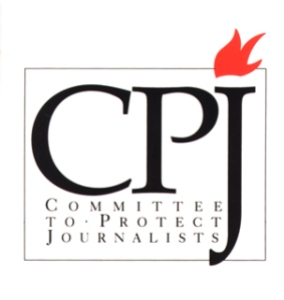There is a TON going on in March in terms of human rights events at UConn, so mark your calendars!
Half the Sky: Turning Oppression into Opportunity for Women Worldwide
Lecture and Booksigning by Sheryl WuDunn
March 3, 2010
7 PM
Jorgenson Auditorium
Join Sheryl WuDunn, best-selling co-author of Half the Sky: Turning Oppression into Opportunity for Women Worldwide. This thought-provoking and profoundly inspiring book highlights how renewed focus on the world’s women and girls can lead to the end of many of the world’s ills, and reveals the cruel reality faced by women who experience violence and oppression from around the world, including, but not limited to as sex trafficking and mass rape. As Tom Brokaw describes it, “Half the Sky is a passionate and persuasive plea to all of us to rise up and say ‘No more!’ to the 17th-century abuses to girls and women in the 21st-century world. This is a book that will pierce your heart and arouse your conscience. It is a powerful piece of journalism by two masters of the craft who are tireless in their pursuit of one of the most shameful conditions of our time.” Lecture followed by a book signing.
Women’s Empowerment: The National Agenda in Rwanda
Guest Speaker: Dr. Jeanne d’Arc Mujawamariya
Thursday, March 4
12:30 – 1:45 p.m.
Student Union Room 304
Dr. Jeanne d’Arc Mujawamariya is Rwanda’s Minister of Gender and Family Promotion. Prior to this appointment, she served as Rwanda’s Minister of Education; Minister of State in Charge of Higher Education; Minister of State in Charge of Primary and Secondary Education in the Ministry of Education, Science, Technology and Scientific Research; Administration Secretary in Charge of Hydrocarbons, Department of Energy in the Infrastructure’s Ministry, MININFRA (formerly MINITRAPE), Rwanda; and was Professor of Physical Chemistry in the Faculty of Education, Department of Biology & Chemistry at the National University of Rwanda.
Human Trafficking in the Post-Armenian Genocide Middle East and the Dilemmas of Modern Humanitarianism: A Lecture by Keith David Watenpaugh
Monday, March 15, 2010
4pm – 5:30pm
Storrs Campus
Babbidge Library, Class of ’47 Room
Drawn from Prof. Watenpaugh’s forthcoming book, Bread from Stone: The Middle East and the Making of Modern Humanitarianism, this talk examines the League of Nations’ efforts on behalf of displaced Armenian women and children in the early post-World War I period.
Screening of Michael Moore’s Sicko (part of the Human Rights in the USA film series)
Tuesday, March 16, 2010
4pm – 5:30pm
Storrs Campus
Dodd Research Center, Konover Auditorium
Admission Fee: Free
The words “health care” and “comedy” aren’t usually found in the same sentence, but in Academy Award winning filmmaker Michael Moore’s movie ‘SiCKO,’ they go together hand in (rubber) glove. While Moore’s ‘SiCKO’ follows the trailblazing path of previous hit films, the Oscar-winning BOWLING FOR COLUMBINE and all-time box-office documentary champ FAHRENHEIT 9/11, it is also something very different for Michael Moore. ‘SiCKO’ is a straight-from-the-heart portrait of the crazy and sometimes cruel U.S. health care system, told from the vantage of everyday people faced with extraordinary and bizarre challenges in their quest for basic health coverage. More information available at: http://doddcenter.uconn.edu/events/hr_usa_film_series.htm
Art, Memory, and Human Rights: A Lecture by Marcelo Brodsky
Tuesday, March 23, 2010
4:30pm – 6pm
Storrs Campus
Dodd Center, Konover Auditorium
Esteemed Argentine photographer, visual artist, and human rights activist Marcelo Brodsky will present a public lecture on his recent work. His previous projects include Buena Memoria/Good Memory, a photographic tribute to family members and friends who “disappeared” during Argentina’s “Dirty War” (1976-1983); Nexo/Nexus, which draws together state terrorism and anti-Semitism in Argentina with the Holocaust; and Memory in Construction, a compilation of essays and artworks revolving around the problem of creating a Memory Museum for the victims of the “Dirty War.” Brodsky recently embarked on a new series called “Correspondencias.” More information (in English and Spanish) can be accessed on his website at http://www.marcelobrodsky.com
The Arts and Human Rights: Perspectives from Latin America
Wednesday, March 24, 2010
10am – 12pm
Storrs Campus
Student Union, Theater
This event features a roundtable discussion by two world famous Latin American artists, Alfredo Jaar from Chile and Marcelo Brodsky from Argentina.
Given that March 24 is the anniversary of the 1976 coup in Argentina that started the so-called “Dirty War,” Jaar and Brodsky will focus their comments on art and human rights around the topic of creating memorials to the victims of state terrorism. Jaar recently finished a commissioned piece for the brand new Museum of Memory in Santiago, Chile. This museum commemorates the thousands of lives lost to the brutality of the Pinochet dictatorship. Brodsky has been an active participant in the debates surrounding the transformation of the clandestine detention center at the Naval School of Mechanics in Buenos Aires, Argentina, operational during the “Dirty War,” into a similar memory museum. He has also edited a book on this subject.
And, don’t miss the opening of Alfredo Jaar’s new exhibition at the Contemporary Arts Gallery, and opening lecture on March 24, 2010:
Public Lecture: Alfredo Jaar
We wish to inform you that we didn’t know
March 24, 2010
4:00 PM Konover Auditorium / Dodd Center
University of Connecticut, Storrs
Exhibition: Alfredo Jaar
2010 Raymond and Beverly Sackler Artist-in-Residence
We wish to inform you that we didn’t know
On view March 24th – April 22, 2010
Reception March 24th at the Contemporary Art Galleries, 5:30 – 7:00 PM




